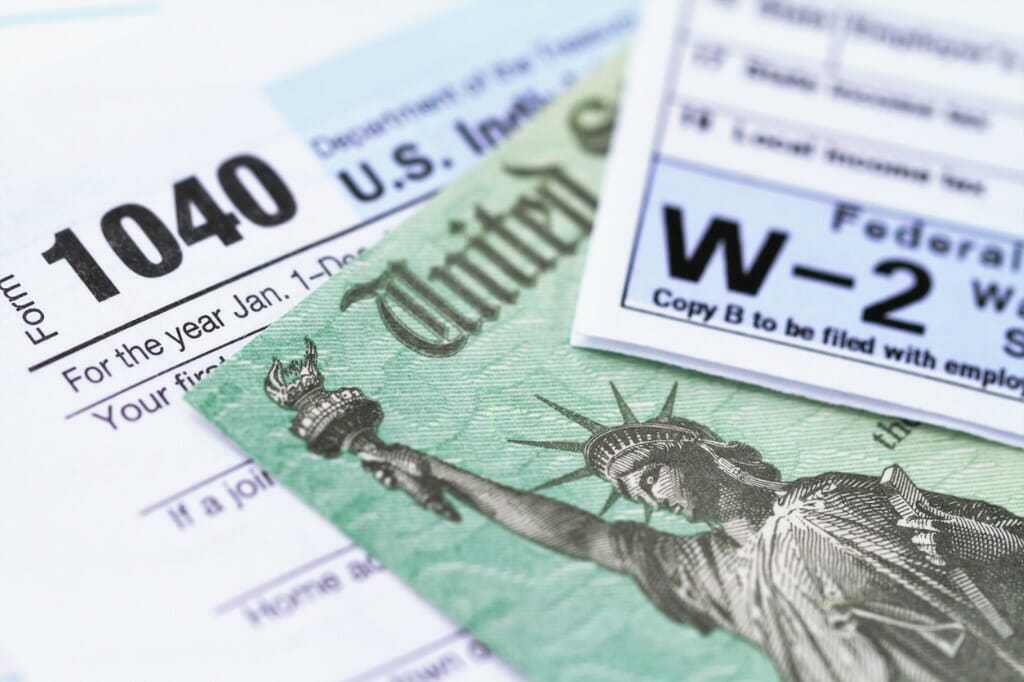2020 Tax Deadline Extension: What Is and Isn’t Extended?
The global COVID-19 (coronavirus) pandemic has had major effects on the global economy and on Americans’ finances. As a result, the federal government is extending the federal income tax filing deadline from the...Wednesday, March 25th 2020, 7:07 am
By Sam Lipscomb, CEPF®

The global COVID-19 (coronavirus) pandemic has had major effects on the global economy and on Americans’ finances. As a result, the federal government is extending the federal income tax filing deadline from the typical April 15 due date to July 15, 2020. That means a wide range of taxpayers, regardless of how much they owe, can wait to file their 2019 taxes until July 15, without having to worry about interest or penalties.
Taxes likely won’t be the only aspect of your finances to be affected by the COVID-19 pandemic. Talk to a financial advisor about your plans today.
What Has Been Extended for 2020
On March 20, 2020, the IRS officially extended the federal income tax filing deadline from April 15, 2020 to July 15, 2020. That means taxpayers who will owe money don’t need to file a tax return until this date, and if they owe money they don’t need to make payments until then.
This extension applies to all filers, including individuals, businesses, trusts, estates and more. It applies regardless of the amount you might owe, and payments will not incur additional penalties or interest up until the new deadline. This extension is automatic, meaning taxpayers do not need to file any additional forms to take advantage of it.
The July 15 extension could provide some significant benefits for taxpayers looking to save for retirement through an IRA. That’s because the normal April 15 income tax deadline is also the IRA contribution deadline. In turn, the new July 15 due date would simultaneously push back the 2019 IRA contribution deadline.
For reference, the 2019 standard IRA contribution limit is still $6,000, or $7,000 if you are 50 or older. If you’ve already maxed out your contribution for the 2019 tax year, you can contribute toward the 2020 tax year, for which the limit is also $6,000.
This extension does not apply to 401(k) retirement savings accounts.
Prior to the March 20 announcement, the extension was only intended to apply to tax payments. In other words, taxpayers would still have to file by April 15, but payments would not be due until July 15. This policy was quickly scrapped in favor of a full postponement of the deadline for both filings and payments.
What Doesn’t the Extension Apply to?Remember that the federal government’s July 15 income tax deadline extension only applies to your federal taxes. State-level income tax extensions vary across the county. In fact, some states are matching the federal government’s new date, while others have their own guidelines.
For example, states like Alabama and Maryland have also extended their deadline to July 15, while California has extended two months to June 15. Find your state government’s tax agency website on the Federation of Tax Administrators’ list to learn more.
While the federal income tax deadline for filing and payments has been extended automatically to July 15, 2020, you’ll still need to file for an extension if you need more time than that. For individual filers, this involves filling out Form 4868. Businesses who need a further extension must file Form 7004.
It’s also important to note that the income tax refund schedule remains unchanged. This serves as an incentive for people to still file sooner rather than later.
How Will the Extension Affect Taxpayers?Whether you’re filing as an individual, a business, a trust, an estate or anything else, your 2020 federal tax filing and payment deadline is now July 15. You won’t need to take any action in order to take advantage of this extension.
However, the federal government is still urging taxpayers to file their taxes as soon as possible. “We encourage those Americans who can file their taxes to continue to file their taxes on April 15,” said U.S. Treasury Secretary Steve Mnuchin.
Since many Americans typically receive tax refunds, Mnuchin goes on to state that he wants those refunds to get into their hands as soon as possible. This influx of extra cash is a great way for many people to lessen the financial hit that this pandemic is responsible for.
Reasons for the ExtensionMany Americans file their taxes online and never meet an accountant face to face. For these individuals, there is minimal, if any, risk of directly spreading COVID-19 through the filing process. However, not all Americans have this luxury, as many individuals need to meet with an accountant in person. Many free tax preparation services, like Volunteer Income Tax Assistance (VITA) and Tax Counseling for the Elderly (TCE), are held in public spaces and may be currently inaccessible.
The extension also gives people extra time to gather their records or access a computer. These are key in helping people file electronically, which is the optimal way to speed up the refund process. Although these reasons might seem fairly trivial, the newly introduced practices of social distancing can makes things much more difficult. Therefore, an extension affords people a little extra time to get their taxes and financial affairs in order.
Perhaps most importantly, the extension may be crucial for taxpayers who will owe the government money. The coronavirus pandemic has already had a significant negative impact on the economy, including job losses and significant declines in the stock market. Those who have felt these impacts may benefit from having another three months before having to pay a tax bill.
Bottom LineThe extension of the federal income tax filing and payment deadline to July 15 is completely automatic. There isn’t anything you need to do to claim it, and it applies to all filers. You also won’t need to worry about incurring any IRS penalties or interest.
If you can, file your taxes as early as possible, as it’ll allow you to receive your refund more promptly. Also, make sure that you don’t forget to file down the road because of this extension. The federal government hopes that the new deadline will provide much needed relief to those most affected by the pandemic.
Dealing With Economic Uncertainty- The coronavirus pandemic has pushed the stock market into a bear market and the economy is teetering on the brink of a recession. Financial advisors can help navigate these troubled times, and finding one doesn’t have to be hard. SmartAsset’s free tool matches you with financial advisors in your area in just 5 minutes. If you’re ready to find an advisor, get started now.
- There are certain personal finance fundamentals that you need to get in order when a recession is on the horizon. Here’s how to prepare for a recession.
- Extending the tax deadline isn’t the only thing the government is doing to take the economic pressure off Americans. Learn what relief is available to you.
Photo credit: ©iStock.com/NoDerog, ©iStock.com/Pra-chid, ©iStock.com/Michail_Petrov-96
The post 2020 Tax Deadline Extension: What Is and Isn’t Extended? appeared first on SmartAsset Blog.
Information contained on this page is provided by an independent third-party content provider. Frankly and this Site make no warranties or representations in connection therewith. If you are affiliated with this page and would like it removed please contact pressreleases@franklymedia.com
More Like This
March 25th, 2020
December 11th, 2024
December 11th, 2024
December 11th, 2024
Top Headlines
December 11th, 2024
December 11th, 2024
December 10th, 2024










